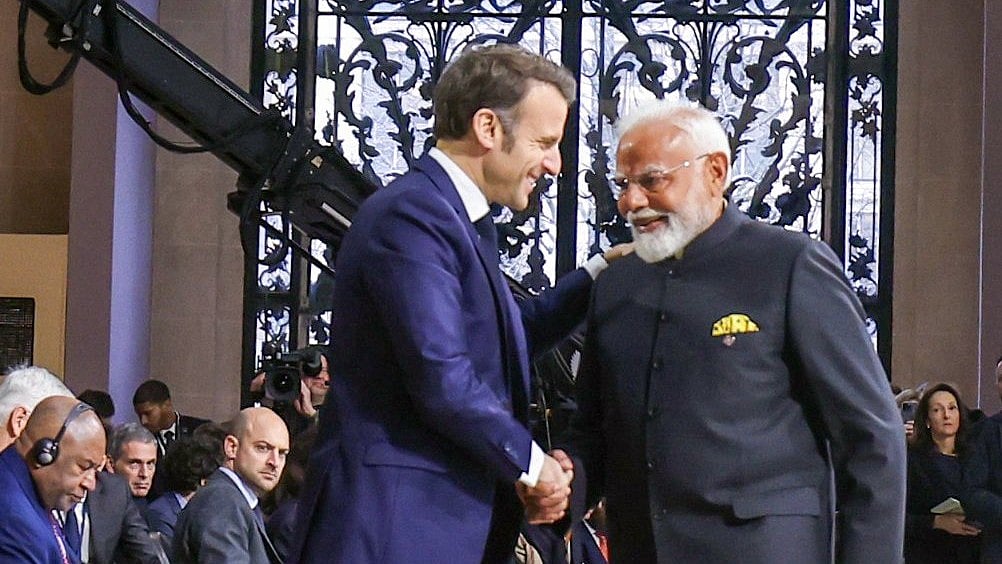The Indian Prime Minister Narendra Modi was among prominent world leaders who signed off on the joint declaration on “inclusive and sustainable” Artificial Intelligence (AI), issued at the conclusion of a summit this week in Paris. A commitment to make AI “open, inclusive, transparent, ethical, safe, secure and trustworthy” is among the priorities identified in the communique. The Prime Minister’s affirmation of this pledge before a world gathering is significant, not in the least because the U.S. and the UK refused to back the initiative spearheaded by the French President, Emmanuel Macron.
The timing of Mr. Modi’s endorsement of the Paris declaration could not have been more significant from a domestic standpoint. The document that he backed broadly echoes the spirit of the recommendations for the development of an AI for an ‘India-specific Regulatory Framework.’ These proposals were submitted in December by the ‘AI Governance and Guidelines Development’ sub-committee of the multi-stakeholder Advisory Group set up by the Union Ministry of Electronics and Information Technology (MEITy).
Among others, the recommendations emphasise a strong ethical orientation, safeguarding the public interest, respect for the rule of law and human rights, transparency and accountability. Crucially, the group, chaired by the government’s principal scientific advisor, has put out a public consultation, eliciting stakeholder inputs on the recommendations by 27 February. This exercise would complement the India AI Mission the Union Government unveiled in March 2024, with an outlay of INR 10,371.92 crores.
That said, India’s approach to the regulation of AI has remained largely fragmentary, as noted in a paper for Carnegie India’s Technology and Society Programme. The overall approach seems to alternate between taking a hands-on and light-touch approach, depending on whether the accent is on the promotion of innovation or the mitigation of risk.
Examples of the former include the Group of 20 countries’ Ministerial Declaration issued during India’s rotating presidency of the forum and the statement to Parliament that the government was not contemplating legislation to regulate AI. Then, a March 2024 advisory, since rescinded, required companies to obtain the government’s permission to deploy certain AI models to counteract algorithmic discrimination.
In view of the divergent perspectives within the government on the roles and limitations of AI, a decision either on amending the 2000 Information Technology Act or progress on the Digital India law would bring clarity on the road ahead. A robust legislative framework is a minimum prerequisite to create an enabling environment and a level playing field, and to equitably divide the benefits of advances. This is precisely what was envisaged in the legislation proposed by MEITy, the country’s nodal agency on AI regulation.
Meanwhile, India’s market for AI is projected to touch $17 bn by 2027, growing at an annual rate of 25%-35%, as per a white paper on AI and MSMEs (Micro, Small and Medium Enterprises) issued by NASSCOM (National Association of Software and Services Companies), the trade and advocacy body. While exuding optimism on the capacity of tech-enabled MSMEs to leverage AI more effectively, the white paper highlights a myriad of challenges to investment and infrastructure that constrain their potential.
India’s considerable capabilities in harnessing AI in agriculture and horticulture have already garnered international attention. One of them is the ground-breaking “Project Saagu Baagu,” launched among chili farmers in 2021 in Khammam district in the state of Telangana. Its success in raising farmers’ incomes via value chain transformation has seen the public-private initiative scaled up in 10 districts, in partnership with the World Economic Forum, the Melinda Gates Foundation and Digital Green. The initiative draws on AI, blockchain, Remote Sensing and Drones. There are equally notable initiatives in the education and healthcare arenas.
Arguably the most ambitious AI intervention on the government’s anvil is the Reserve Bank of India’s plans to upgrade the Universal Payments Interface (UPI) digital payments systems to enable AI-powered conversational payments. The aim is to penetrate the remote rural hinterland, with a view to enabling the largely illiterate population to make transfers from their phones through verbal instructions using speech-recognition AI.
The service will use open-source AI tools developed by the Indian Institute of Technology Madras and would initially be restricted to English and Hindi. However, the ambition to deepen digital payments coverage through this endeavour must be tempered by the realism that less than half of India’s population uses the internet and a mere 15% of rural households enjoy internet access.
The government has offered attractive incentives to lure giant global tech firms such as Microsoft, Google and Amazon to invest in India’s burgeoning computing infrastructure and to build data centres to increase IT capacity. Clearly, these massive strides in AI advances could propel India right to the top of the global technology ecosystem in the near future.
But in the absence of a cohesive, transparent and accountable regulatory framework, the country could be faced with uncertainty from disparate policies. Above all, such a scenario could exacerbate the deep inequalities that cripple society and deny opportunities for the next generation.
